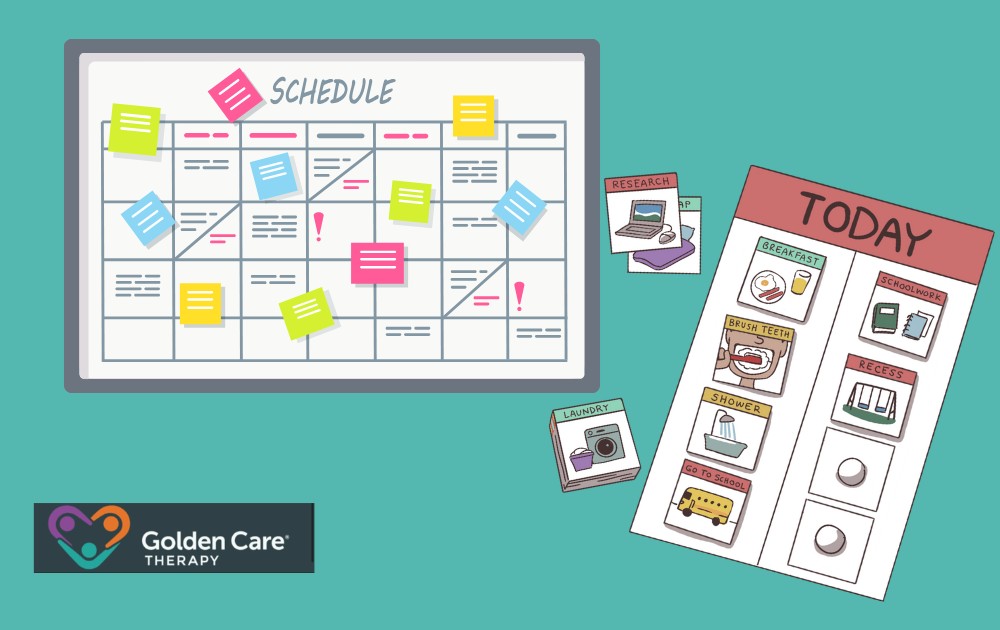Inflexible thinking can make everyday situations feel like a maze, especially for those with autism. It’s the tendency to get stuck in one way of thinking or approaching things, even when a change is needed. This can make adapting to new situations, solving problems, or switching tasks feel incredibly challenging. Available support and programs, such as tailored therapies and skill-building strategies, can help individuals develop more flexible thinking and improve their ability to navigate these challenges.
Understanding how inflexible thinking works in autism is key to supporting individuals in navigating their world with more ease and confidence.
Whether it’s sticking to routines or struggling with unexpected changes, learning about this aspect of autism can help us foster more understanding and patience in our interactions.
What is Inflexible Thinking in Autism?
Inflexible thinking, also known as cognitive rigidity, refers to difficulty in adapting to new situations, changes, or perspectives. Individuals with inflexible thinking may find it challenging to shift their thoughts or actions when faced with new information or unexpected changes.
This rigid thought pattern can make it stressful to deviate from routine or familiar scenarios.
In individuals with autism, inflexible thinking often appears through specific behaviors and thought processes. These can vary widely but commonly include:
- Strong attachment to routines
- Difficulty coping with changes or disruptions
- Repetitive behaviors or speech
- Struggles with transitioning between activities
Understanding these manifestations helps caregivers and individuals create supportive environments that consider and respect the need for consistency and predictability.
Impact of Inflexible Thinking
Inflexible thinking significantly affects various facets of life for individuals with autism. Understanding its impact can help caregivers and individuals with autism navigate these challenges more effectively.

Social interactions can also be particularly challenging due to inflexible thinking. Difficulty understanding social cues and the nuances of conversations may lead to misunderstandings or social withdrawal. This can affect relationships with peers, family, and facilitators.
Then there’s emotional regulation which is another area significantly impacted by inflexible thinking. Individuals may experience heightened emotions when faced with unexpected changes or sensory overload.
This can lead to emotional outbursts or shutdowns, affecting both their well-being and those around them.
Understanding the impact of inflexible thinking provides insights into the daily, social, and emotional challenges faced by individuals with autism. This knowledge can guide efforts to support and improve their quality of life.
How to Support Inflexible Thinking Among Autistic Individuals
Inflexible thinking in autism can pose significant challenges in daily life. Implementing strategies to support flexibility can greatly enhance the quality of life for individuals with autism and their caregivers.
Here are some effective strategies:

Creating Predictable Routines
Consistency is vital for those with autism. Predictable routines can provide a sense of security and reduce anxiety. Establishing regular schedules helps individuals anticipate what to expect throughout the day.
These routines can be adjusted based on individual needs and preferences, ensuring they feel comfortable and secure.
Visual Supports
Visual supports are a powerful tool in promoting flexible thinking. Visual aids such as visual schedules, charts, and cue cards help individuals understand and follow routines better. They provide clear, visual representations of tasks and activities, making transitions smoother.
Visual tools assist in planning and executing daily tasks, thereby fostering greater independence.
Social Stories
Social stories are short narratives that describe social situations and appropriate responses. They are especially useful in helping individuals with autism adapt to changes and develop flexible thinking. Social stories can be customized to fit the specific needs and scenarios that the individual might encounter.
With the help of social stories, caregivers can help individuals prepare for various social interactions and changes in routine.
Using these strategies can significantly improve flexibility in thinking and enhance daily living for individuals with autism. Implementing predictable routines, visual supports, and social stories can lead to smoother transitions and more positive experiences.
Final Thoughts
Inflexible thinking can make everyday tasks more challenging for those with autism, but it’s important to remember that it’s just one aspect of their unique way of thinking. Understanding and accepting this trait helps create better environments for them to thrive.
With support, individuals can learn strategies to adapt and find ways to be more flexible in their thinking.
Patience, understanding, and the right guidance can make a world of difference, allowing them to develop skills that help them navigate the world in their own way. At Golden Care Therapy, we specialize in providing personalized ABA therapy that helps children thrive and reach their full potential.
Our team of experienced professionals is dedicated to offering high-quality, evidence-based interventions that create lasting progress. We proudly offer ABA therapy in Georgia, New Jersey, Indiana, New York, and Florida. Contact us today to learn more about how we can support your child’s growth and development!
Sources:



